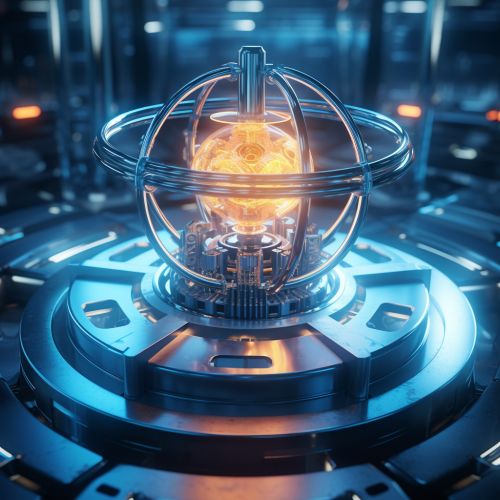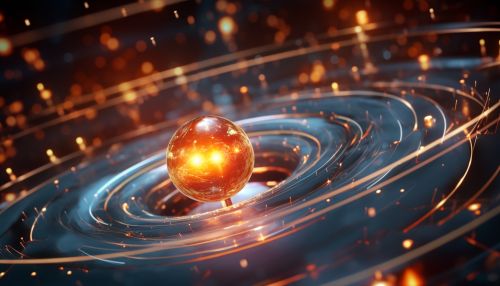Neutron
Introduction
A Neutron is a subatomic particle, symbol n or n0, which has a neutral (not positive or negative) charge and a mass slightly greater than that of a Proton. Protons and neutrons, each with masses of approximately one atomic mass unit, are collectively referred to as "nucleons" (particles present in atomic nuclei).
Discovery
The neutron was discovered in 1932 by the British physicist James Chadwick. Chadwick was awarded the Nobel Prize in Physics in 1935 for his discovery. The discovery of the neutron led to significant developments in our understanding of atomic structure, specifically the nature of atomic nuclei.


Properties
Neutrons are electrically neutral particles that, along with positively charged protons, form atomic nuclei. The mass of a neutron is 1.00866491588 atomic mass units (amu), slightly greater than that of the proton, which has a mass of 1.007276466812 amu. Neutrons and protons have approximately the same mass, but differ significantly in their electric charge.
Structure
The neutron is a composite particle made of three quarks bound together by the strong nuclear force. The types of quarks in a neutron are two down quarks and one up quark. The strong force is one of the four fundamental forces of nature, and it is responsible for holding atomic nuclei together.
Neutron Decay
Free neutrons, or those not bound within a nucleus, are unstable and will undergo beta decay with a half-life of about 14 minutes and 42 seconds. In beta decay, a neutron is transformed into a proton by the emission of a W− boson, which quickly decays into an electron and an electron antineutrino.
Role in the Universe
Neutrons play a crucial role in many of the physical processes that occur in the universe. They are key players in nuclear reactions and nuclear decay, processes that power the sun and other stars. Neutrons also play a key role in the production of elements in the universe through a process known as nucleosynthesis.
Neutrons in Nuclear Technology
Neutrons are essential components of nuclear reactions, including those used in nuclear power plants and nuclear weapons. In nuclear fission, the nucleus of an atom is split into two smaller parts, often along with the release of free neutrons. These free neutrons can then trigger further fission reactions, creating a chain reaction.
Neutrons in Medicine
Neutrons also have applications in medicine. For example, neutron capture therapy is a type of radiation therapy that uses a neutron beam to treat certain types of cancer. The neutrons are absorbed by the cancerous tissue, which then emits radiation that kills the cancer cells.
